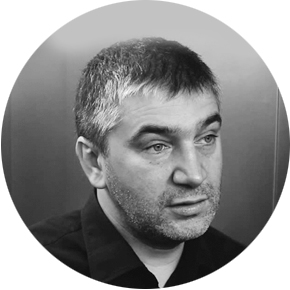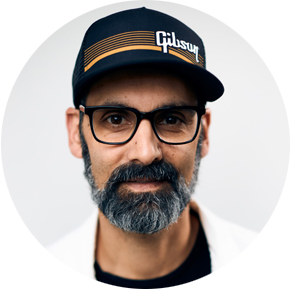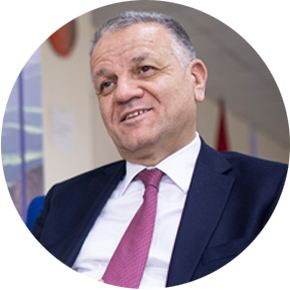Founder and Director-General at Acronis, Senior Partner at Runa Capital, Adviser and Venture Capitalist at Phystech Ventures and Chairman of the Board of Directors at Parallels Serguei Beloussov visited Yerevan last week and talked about his impression with Mediamax.
- You spent quite saturated days in Yerevan. What do you remember best?
- I am pleasantly surprised, and what I saw exceeded my expectations. There is a stereotype, which pictures Armenia as a poor country. Probably it really is a poor country, but it’s very well organized.
Some of the start-ups I was showed were quite interesting.
PicsArt, Tumo Center, Ayb School simply “hooked” me. People should understand that projects such as Ayb and PicsArt will bring tangible results, in, so to speak, 10 years. It would make one laugh to hope the school might bring in changes earlier than that.
- What chances does Armenia have in the technological sphere?
-20, 30 or 50 years down the road the material world in which we live today and in which oil, gas or gold dominate will become way smaller compared to the world, which will be comprised of data and apps.
A very big part of our life and our assets will be converted to technologies and information technologies. Capitalization and the significance of the technological world are constantly increasing.
The history shows that nations with huge resources don’t pay much attention to the construction of schools, universities and technology parks, neither they teach people IT, Math or physics. And when a historical “crack” occurs, it’s already too late.
In this regard, Armenia which lacks material resources, apparently, has prospects for enhancing its knowledge. The IT sphere does not necessarily need to be the primary focus of interest; attention should be paid to material sciences, electrical engineering and other areas as well.
- How should the outflow of workers be dealt with? A successful programmer making good money in relevance to the standards of Armenia is likely to leave Armenia after getting an interesting invitation from the Silicon Valley. How to hold people back from it?
- First of all, you should not underestimate yourself. Secondly, irrespective of how attractive a certain job appears to people, they long for living where they feel comfortable, and I think Armenia is not too far behind it. People need good schools, good universities, good nature, good restaurants and so on. Besides, people need motivation.
For example, Estonia used to face an even graver issue with regard to the outflow of workers than Armenia does, at that, Estonian people didn’t need a visa to enter the EU territory and neither it was hard for them to get a U.S. visa. But gradually some environment emerged in the country, which made living there comfortable and interesting.
- In one of your interviews you confuted the stereotype, which had it that friendship and business are not compatible, and said that you keep on working with many of your messmates. In addition, you used to provide an interesting argument claiming that the business development contributes to the preservation of friendship, while the breakdown, on the contrary, results in squabbles. It somehow contradicts to the popular saying, which states that “a friend in need is a friend indeed”.
- I do work with messmates but it doesn’t mean the team is not being updated. For example, David Yan [ABBYY Founder] is very proud of working with the same people he used to work back in 1992, when he was just starting. In our team, we have both inflow and outflow of employees.
The backbone of my team engaged in various companies with me is comprised of 50 people. Among them there are people with whom I have been working for 22 years, but there are also people with whom I have been working for only a year.
As to the squabbles, they have always occurred, and they will keep on occurring. The closer people are, the more painfully they might hurt each other. It is exactly in this regard that civil wars are the most horrible ones. It’s easier to hurt your brother as you know much about him. The same is true about people with whom you have been working long since.
- With the development of machines and technologies as well as the growth of the automation of a number of processes, the role of the humans has not diminished; on the contrary, it keeps on increasing. It refers to the most talented people who are “going like hot cakes”. How do you work with such people?
- It’s a very extensive question. What I basically do is to recruit talented people and work with them. It’s very hard to tell about all the tools. We cooperate with universities, train people, grant them freedom and support. I do my best for people to earn much. There are great many niceties - very often it’s quite hard to work with talented people.
- How do you feel about social networks and about how they change the psychology of people and the accepted standards of human communication?
-I have around 8000 Twitter followers and roughly 5000 friends on Facebook. People have appeared at a radically new phase of development. From the point of sociology and psychology the world will change more rapidly within the coming 100 years than it did over the past millennia.
Human values greatly depend on your circle of communication. Living in a cave with a tribe comprised of ten people is one thing and living in a village with a population of 300 people is another thing. In social networks you engage with hundreds of people and it’s a fundamentally different dimension. It’s a bit hard to say if it changes the world for the better or not. Perhaps, it makes it more productive to some extent.
My system of values encompasses several simple principles, and one of them has it that knowledge is good and any problem can be resolved if you possess accurate knowledge. In this regard, modern technologies constituting knowledge are always a positive factor. Relying on this hypothesis, it can be concluded that additional knowledge and communication are positive in their nature rather than negative.
- There is also the opposite standpoint, which has it that the social networks are like a “Big Brother” aware of everything related to you.
- Quantum safe communications are what bother me. When Internet was just being introduced, people used to claim it would make the world free, while it made it restricted at the most and the concept of privacy, which is as basic instinct as freedom is, virtually disappears. It’s a huge issue the world should resolve but it bears a purely technological nature. As people start to realize the importance of privacy, there will be more room to abide by it.
-A few years ago people would never think a huge plane would utterly disappear. Nobody could imagine the relations between Russia and Ukraine would reach a “boiling point”. How do you see your life, your business and your wishes in conditions when the notorious “confidence in the future” becomes merely a dream?
- Humans are the most surprising creatures so far known in the Universe, and the human brain is the most surprising object in that Universe. A myriad of things can be done with the help of the human brain, and any problem can be settled. It’s a principle of optimism; it’s like faith in God. You either believe, or not. I believe everything will be okay. Even though, strange things happen.
The human world is way more interrelated than people think. People think they are not greatly interdependent and their actions do not considerably affect other people. There exists great and unspoken tension between people, nations and states in the world. These tensions distort space and weird situations such as the conflict between Russia and Ukraine and the disappearance of the liner occur. But I believe everything will be settled.
Ara Tadevosyan talked to Serguei Beloussov.


























Comments
Dear visitors, You can place your opinion on the material using your Facebook account. Please, be polite and follow our simple rules: you are not allowed to make off - topic comments, place advertisements, use abusive and filthy language. The editorial staff reserves the right to moderate and delete comments in case of breach of the rules.